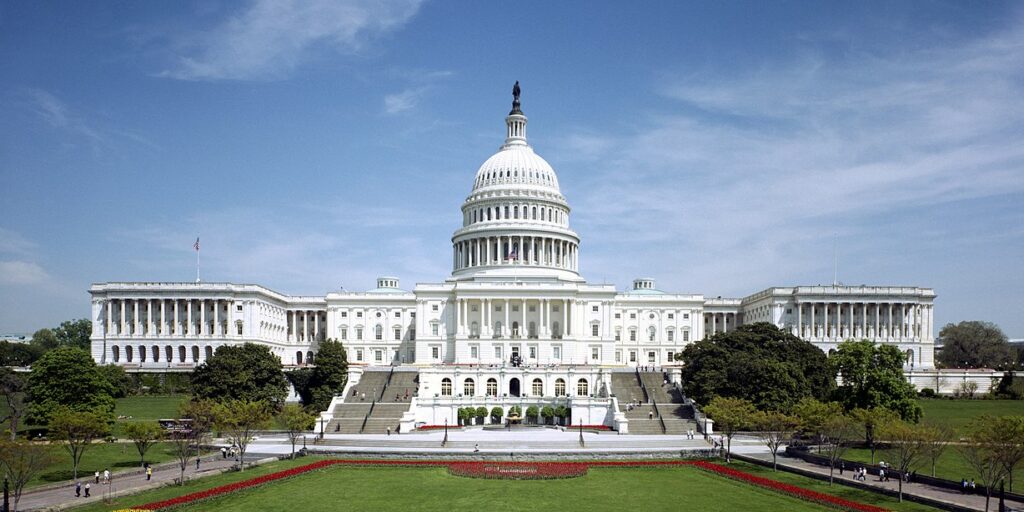Narratives of Illegitimacy
American politics are awash with narratives of illegitimacy. We’re not just questioning the judgment of our rivals, we’re questioning their loyalty, their commitment to the rule of law and the Constitution, as well as their patriotism. In other words, we’re questioning whether our political opposites are, truly, American. It’s difficult to imagine a more serious threat to the American experiment.
The playbook is familiar at this point. Republicans—including then-citizen Donald Trump—openly challenged whether Barack Obama was born in the United States. They demanded he release his birth certificate. They said he was educated in a “madrassa” or Islamic religious school. They used that language to stoke fear in some corners of a black man with a funny-sounding name becoming president. They did so to undermine Obama’s presidency, they openly wished for his failure, and they claimed that his loyalties lay with America’s enemies—in particular, with Islamic extremists.
Many on the left have never recognized the legitimacy of Donald Trump’s presidency. Obsessing over the loss of the popular vote for the second time in less than two-decades, they claim that Trump is not their president. They point to Russia’s intervention in the American election in 2016 to help Trump as grounds for questioning the loyalty and integrity of the president and his political allies, like Senator Lindsey Graham.
Even now, two principle narratives of illegitimacy hang over the 2020 race. The first, pushed by President Trump and his allies, contends that mail-in ballots are susceptible to fraud and will make the outcome of the 2020 election unreliable. The other is the open fretting of some, not limited just to the left, that President Trump may not leave the White House peacefully if he loses the election in November.
The danger in all of these stories is that they depict our political rivals as illegitimate. Legitimacy speaks to whether an individual has the standing, the appropriately conceived authority, to act within our governing system. If you believed Barack Obama was not a natural-born U.S. citizen, then you didn’t believe he was the legitimate president of the United States. If you believe that Donald Trump is compromised by Russian blackmail, then you question the legitimacy of his administration.
Some might dismiss my reasoning as a false equivalency—that I shouldn’t equate “birtherism” with the well-documented attack by Russia on American democracy and President Trump’s peculiar deference to Russian President Vladimir Putin. But this essay isn’t about the truth, it’s about narrative, and what happens when both sides see their rival’s political power as inherently illegitimate.
If, for political expediency, we dismiss our rivals as illegitimate, then we dismiss the rule of law; we dismiss the Constitution; we dismiss the fact that elections have consequences. Governing, in that environment, ceases to be about service to the nation and bringing Americans together to solve common problems. Instead, governing becomes about power—who has it, who wants it, and what will they do to preserve it. By any measure, left or right, this is the path to political violence and tyranny.
These aren’t new forces in American politics. In the 1950s, Senator Joseph McCarthy used fear and innuendo of communist subversion to further his own political fortunes at the expense of the lives and careers of the people he smeared. Even in the first decade of the Republic, the Federalist-controlled Congress passed the Alien and Sedition Acts to protect President John Adams and his political power from Republican critics in Congress and the press.
In each of those cases, the fever ultimately broke, not because it was destined to—federal courts prosecuted 26 individuals under the Alien and Sedition Acts between 1798 and 1801—but because individuals rose to fight it. Often, the heroes were members of the press like Edward R. Murrow in the 1950s and James Callender in the 1790s.
In today’s very different media environment, where social media makes every citizen a purveyor of information, it falls to each of us to check the impulse to dismiss those who disagree with us politically as “other,” as “foreign,” as “compromised,” as “less American than me.” That’s the only way we avoid the trap of seeing this amazing nation divided into “Democratic cities” and “Republican cities” or “Red states” and “Blue states” whose challenges—whether COVID infections, or opioid addictions, or social injustice—are viewed as little more than parochial, partisan issues.
These are the United States of America, after all, and we’re in this together.

